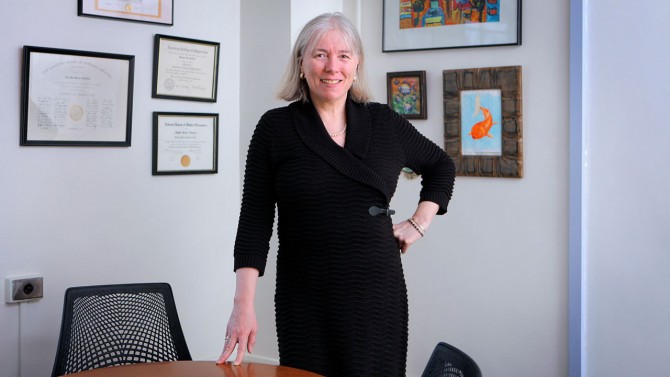COVID-19 patient registry helping track disease’s evolution
By Louis DiPietro
A Cornell-led COVID-19 patient registry, organized by Weill Cornell Medicine physicians and scientists in response to surging cases earlier this year in New York City, continues to be a source of medical insight into the workings of the novel coronavirus and treatment of infected patients.
Illustrating the power of interdisciplinary cross-campus collaboration, a team of Weill Cornell Medicine physicians and scientists based in New York City, along with student statisticians collaborating remotely from Cornell’s Ithaca campus and elsewhere, have built a secure database with medical data on more than 4,000 patients who had clinical symptoms of COVID-19 and were seen at one of three NewYork-Presbyterian Hospital campuses.
From this registry, medical professionals are learning more about how to treat patients with COVID-19, which has claimed more than 1.5 million lives worldwide. Weill Cornell Medicine researchers are posing specific questions about COVID-19 and SARS-CoV-2, the virus that causes it, such as:
- Are cancer patients more susceptible to worse outcomes if infected? and
- Is there a correlation between NYC infections and housing density?
Meanwhile, collaborating data-science students are using statistical modeling to crunch the patient data for answers. Through this remote collaboration, this multidisciplinary team is relaying to the medical community fresh findings about COVID-19, including better methods for treatment.
“We understand that careful observational science has the potential to help front line physicians make informed management decisions,” said Dr. Monika Safford, chief of Weill Cornell Medicine’s Division of General Internal Medicine and the John J. Kuiper Professor of Medicine. Safford was one of the co-leaders in developing the registry.
“While the initial impetus for forming the registry was to inform clinical care in a data void,” Safford said, “the full potential of the registry was realized with studies that were less urgent in nature but nevertheless made important contributions.”
From this registry alone, the institution’s researchers have published 20 peer-reviewed papers inside of six months in major medical journals.
Louis DiPietro is communications coordinator for the Department of Information Science.
Media Contact
Get Cornell news delivered right to your inbox.
Subscribe

